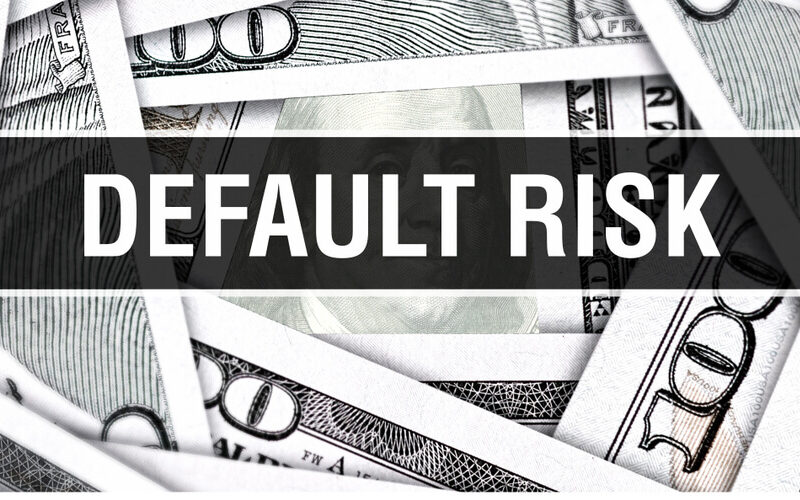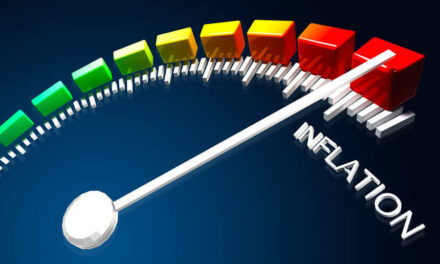The vast herd of investors are a deluded crowd. Following the Federal Reserve’s much anticipated 75 basis point rate hike earlier this month the major stock market indexes jumped upward.
Optimistic investors keyed in on the Federal Open Market Committee (FOMC) statement and, in particular, the remark that the Fed, “will take into account the cumulative tightening of monetary policy, the lags with which monetary policy affects economic activity and inflation and economic and financial developments.”
Somehow this was perceived as being the precursor to a policy pivot. Yet during the post-FOMC statement press conference, Powell clarified that, “It’s very premature to be thinking about pausing.”
Stocks then fell off a cliff. The Dow Jones Industrial Average (DJIA) closing out the day with a loss of 505 points.
Will there be a pivot, pause, or no pivot? This is the wrong question to be asking. The reality is the major stock market indexes have much farther to fall before the bear market is over, regardless of if the Fed pivots anytime soon.
If you recall, the Fed began cutting interest rates in September of 2007. Yet the stock market didn’t bottom out until March of 2009. Similarly, the Fed began cutting interest rates in January of 2001. Still, the stock market didn’t bottom out until October of 2002.
Thus, using these two most recent bear markets as a guide, once the Fed finally begins cutting interest rates, which would come after inflation has begun to abate and a period of interest rate pause, the stock market will continue to fall for another 18 to 22 months.
In other words, this bear market may not bottom out until well into 2025. What’s more, the entire dollar based financial system will likely blow up sometime beforehand.
How’s that for a grim outlook?
Investors, as you can see, are incredibly twisted up by the Fed’s money games, and how they’ve enhanced the peaks and valleys of the stock market. As for workers and voters, many don’t have a clue as to the ramifications for the real, Main Street economy. Here’s why…
No Clue
Fiscal policy, as opposed to monetary policy, is more readily understood by workers and voters. Income taxes, budget deficits, the national debt. These are all real things the average person of moderate means and mental capacity can grasp a hold of, should they care to.
The effects of zero interest rate policy (ZIRP) or quantitative easing (QE), however, are less apparent to the casual observer. Politicians may make superficial remarks about consumer price inflation if they think it will score points with voters. But actual currency debasement policies are rarely mentioned.
Certainly, workers experience the wild booms and busts of central bank caused price distortions. Still, few ever trace the genesis back to the Federal Reserve. Instead, they see what appear to be extreme price increases and place the blame on producers.
For example, workers may falsely condemn capitalism for rising prices, especially when provoked by populist politicians. Yet they never scratch below the surface where the Fed’s money and credit games are lurking. If they did, they’d find a system that stacks the deck against them.
Take the industrious wage earner. As he goes about his day-to-day business, he may find that, despite working harder and harder, his lot in life never improves. In fact, it may even regress.
But many won’t recognize heavy handed monetary policy as reasons for their disappointment. The erosion of purchasing power can be subtle over long periods. Moreover, the effects of currency debasement policies extend to all corners of the economy.
Take the recent college graduate, making a subsistence wage at a franchise coffee shop, buried under $50,000 in student loan debt. He may be deeply aware that something is radically wrong. He may even ask, ‘How come the cost of school is at such disparity with the value it provides?’
Nonetheless, many college graduates won’t correlate the bubble in student loan debt, or the massive building boom on college campuses, to the Fed’s mass credit creation machine. Nor will they contemplate the broken promises that led them down such a futile path. Rather, they look to the President, like an ancient Egyptian pharaoh, to cancel their debts.
Gimme My Stimmy
Similarly, voters may celebrate a new stimmy check, while disparaging greedy capitalists for making their daily cup of coffee so expensive. Some will even use their free government money to buy a “GIMME MY STIMMY” T-Shirt. Yet few will bother to ask, ‘Where’s the money coming from?’
The answer, of course, is as hollow as it sounds. That is, it’s created out of thin air.
Still, the majority of Americans are incapable of putting two and two together. In fact, this week spectacular evidence was given proving that the majority of Americans are, indeed, mildly retarded.
What are we talking about?
The following Newsweek headlines will leave you questioning the enlightenment of democratic rule…
“Majority of Americans Back New Stimulus Checks To Combat Inflation”
The Fed’s ruse, no doubt, works exceedingly well when consumer prices are suppressed over a multi-decade experiment in globalization and increasing international trade. The Fed can get away with debasing the currency to juice financial markets and finance bloated government spending programs when cheap, imported goods fill the shelves of Costco and Walmart. Workers are none the wiser.
But after flooding the economy with upwards of $5 trillion to combat the effects of despotic coronavirus lockdowns, the Fed has produced a problem that won’t simply go away. The money is out and about, chasing prices higher. But the majority of Americans want more stimmy checks to somehow combat this.
At the same time, a geopolitical shift is reversing the 50-year trend in globalization. This structural change in the economy will propel prices higher for decades to come. Hiking interest rates several percentage points won’t cut it.
Obviously, one can’t assign all liability for the broad population’s financial malaise to the Fed. Lethargy and sloth remain principal culprits for many folks’ immobility.
Poverty, remember, for a majority of people that live with it, is more of an attitude than a financial condition. Giving someone free money does nothing to adjust their attitude of poverty. To the contrary, it reinforces their dependence.
We’ve seen how industriousness and ingenuity can still overcome ZIRP. Though for wage earners this is an increasingly difficult task. What good is a 3 percent pay raise when the official rate of consumer price inflation is 8 percent, and the real inflation rate is over 16 percent?
Are You Ready for the Coming U.S. Government Default?
The point is, more than anyone else, Fed Chair Jay Powell has his fingerprints all over today’s raging consumer price inflation and the now destructive rate hiking means for containing it. The Fed’s efforts to smooth out the peaks and valleys of the business cycle and keep the gravy flowing to its private member banks have had the ill effect of magnifying them.
The consequences to workers, savers, and retirees alike are remarkably harmful. Furthermore, as the current financial order strains to preserve the status quo, the level of intervention into the economy and financial markets will continue to mushroom like mold spores on wet drywall. Radical policies will be hatched to cover the shortcomings of prior blunders.
The U.S. national debt has topped $31.2 trillion. Tack on the debt of households, businesses, state and local governments, and financial institutions, and you’re looking at a total U.S. debt over $92.9 trillion.
As the Fed hikes interest rates to contain the raging inflation of its making, the cost of servicing government debt increases. Total U.S. tax revenue is approximately $4.9 trillion. Total U.S. interest paid is nearly $480 billion. Before long just servicing the debt interest could exceed social security and medicare/medicaid as the largest budget item.
Then what?
The popular American myth is that the U.S. government has never defaulted on its debt. Quite frankly, that’s an unadulterated lie. The U.S. government has (unofficially) defaulted on its debt twice within the last hundred years.
Executive Order 6102 of 1933, which forced all American citizens to turn in gold coins and bars, was, in fact, a default. Gold ownership in the United States, with some small limitations, was illegal for the next 40 years.
Under EO 6102, Americans were compensated $20.67 per troy ounce of gold. They were paid with paper dollars. Immediately following the government’s gold confiscation, the price of gold was raised by the Gold Reserve Act of 1934 to $35 per ounce. Just like that, American citizens were robbed of over 40 percent of their wealth.
The second default occurred in 1971, when President Nixon “temporarily” suspended the convertibility of the dollar into gold.
Prior to 1971, as determined by the Bretton Woods international monetary system, which was agreed to in Bretton Woods, New Hampshire, in July 1944, a foreign bank could exchange $35 with the U.S. Treasury for one troy ounce of gold. After the U.S. reneged on this established exchange rate, when foreign banks handed the U.S. Treasury $35, they received $35 in exchange.
In both instances, the U.S. government didn’t overtly default on the debt. Instead, it changed the fundamentals – the terms and conditions – of the dollar. By all honest accounts, these are defaults.
What dirty trick does Uncle Sam have up his dirty sleeve this time?
One possible swindle is the issuance of a digital dollar – a Fed or government issued central bank digital currency (CBDC) – which is traceable and programmable. When it is introduced, your accounts will be credited one for one, as in one federal reserve note for one digital dollar. But what you’ll be able to buy in return with your digital dollars will be far less.
You see, the digital dollar roll out will provide elaborate cover.
Make no mistake. This is a default. And it is coming much sooner than you think.
Are you ready?
[Editor’s note: Quite frankly, it’s maddening. But you must not be a victim. For this reason, after nearly two decades of research, I damn near killed myself putting together the Financial First Aid Kit. Inside, you’ll find everything you need to know to protect your wealth and privacy as the U.S. government defaults for the third time in the last 100-years.]
Sincerely,
MN Gordon
for Economic Prism




